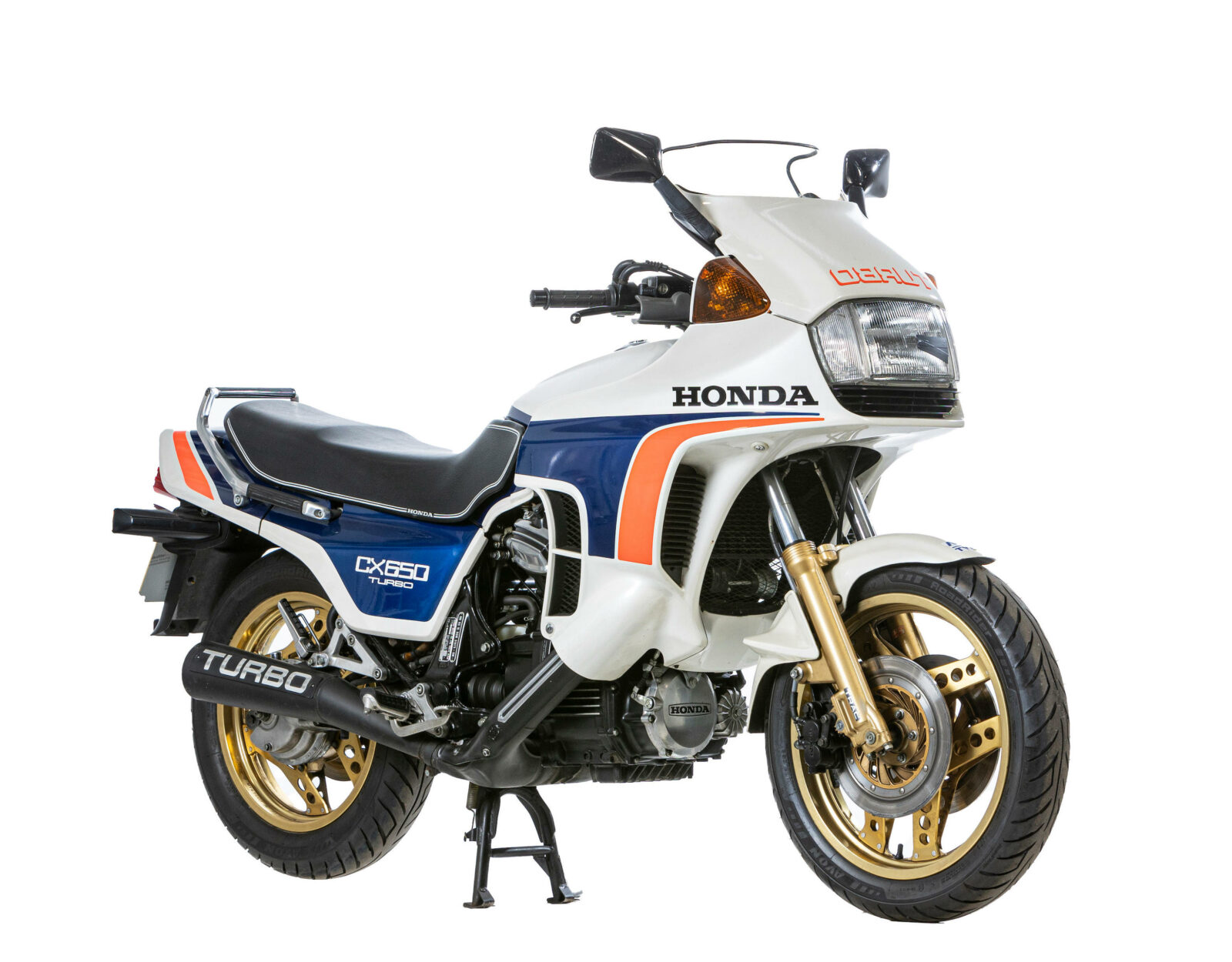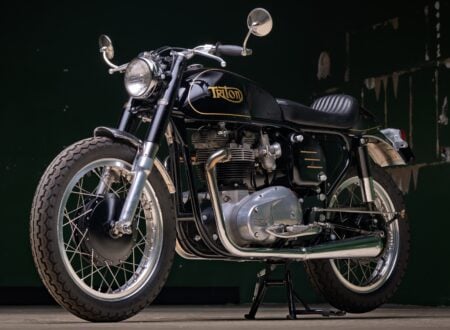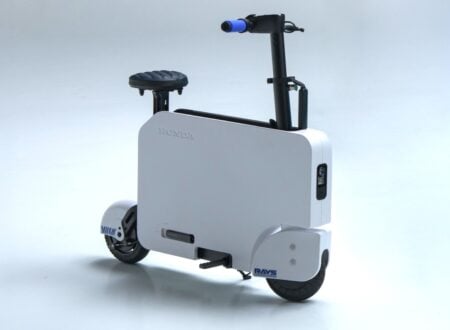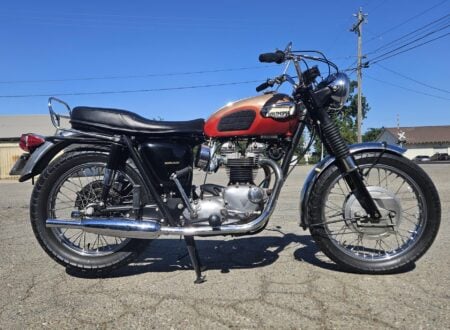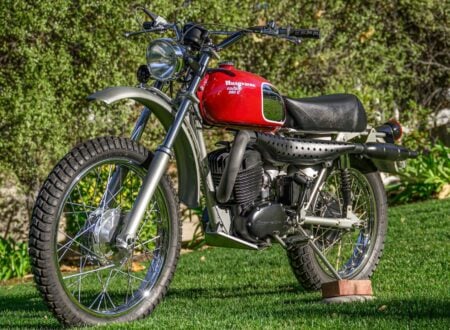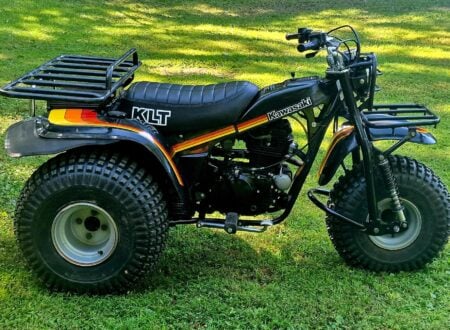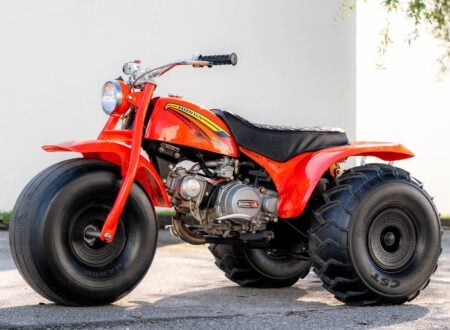This is an original Honda CX650 Turbo, it’s one of just 1,777 that were built, and many consider it the best of the turbocharged production motorcycles that began appearing in the late 1970s and into the early 1980s.
The CX650 Turbo was based on the earlier CX500 Turbo, in many respects these were experimental production motorcycles from Honda that were only made in very limited numbers to test the public demand for forced-induction motorcycles.
Fast Facts – The Honda CX650 Turbo
- The Honda CX series began with the CX500, launched in 1978. It was a water-cooled V-twin that was known for its unusual transverse engine configuration. The series was continuously developed over the years, culminating in the CX650 models.
- Honda introduced the CX500 Turbo in 1982 as the world’s first factory-produced turbocharged motorcycle. A year later, in 1983, they unveiled the improved CX650 Turbo, built upon the insights and feedback from the earlier 500cc model.
- The CX650 Turbo boasted an IHI turbocharger that allowed the 673cc engine to generate a remarkable 100 bhp, making it one of the most powerful bikes in its displacement class. It also used a computerized fuel injection system, which was unusually advanced for the era.
- The turbo era for motorcycles was short-lived, with the big four Japanese manufacturers all dabbling in turbocharged bikes for a brief period. The CX650 Turbo was Honda’s final foray into this territory. Today, it’s remembered as a unique piece of motorcycle history and is sought after by collectors and enthusiasts.
How To Turbocharge A Motorcycle
The concept of turbocharging a motorcycle makes a lot of sense when you consider that turbos tend to add only a small amount of weight, it doesn’t sap power from the engine in the same way that a supercharger does, and it increases engine power.
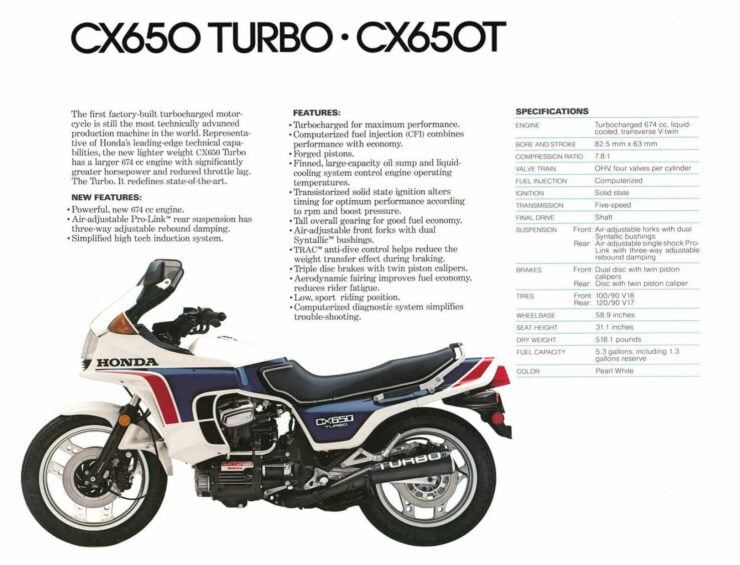

The difficulties presented by turbocharging are unfortunately plentiful, they typically can’t be fitted with intercoolers so the intake charge is very hot, and the infamous issue of turbo lag can be even more dangerous with a motorcycle than it is in a car.
All four of Japan’s “Big Four” motorcycle manufacturers experimented with turbocharged bikes for a brief period in the late 1970s and into the 1980s, ultimately it proved to be an evolutionary dead end. That said, the concept of forced induction motorcycles has been making a comeback in recent years, most famously with the Kawasaki Ninja H2 which produces up to 326 bhp.
The world of motorsport has also made great strides with both turbocharging and supercharging, particularly land speed racing and drag racing.
The Honda CX650 Turbo
The Honda CX series of motorcycles debuted in 1978 with the CX500, it was an unusual design to say the least, with a longitudinally-mounted, liquid-cooled, push-rod V-twin with a displacement of 497cc and a 5-speed transmission located below the crankshaft sharing a common casing.
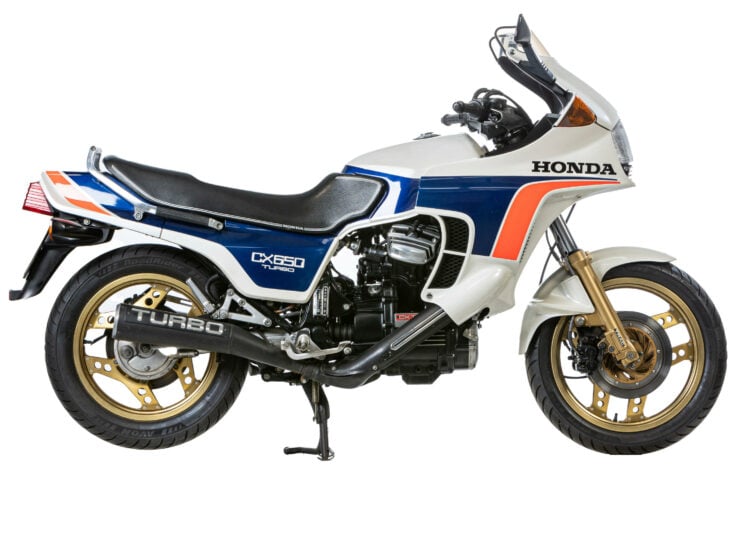

Power is sent to the rear wheel via a shaft drive, and during the development and design phase it was decided to rotate the heads 22° so that the intake wouldn’t interfere with the rider’s knees.
When the CX500 first appeared it wasn’t greeted with open arms by many in the motorcycle community. No one really knew what to make of it, and in some markets it was nicknamed the “plastic maggot.”
The bike did find a niche as a courier motorcycle, particularly in Europe, and it made a good commuter bike for those who didn’t mind the model’s quirks. In 1982 Honda released the CX500 Turbo (also known as the CX500TC), interestingly it was both the world’s first production turbocharged motorcycle, and Honda’s first production motorcycle with a programmed fuel injection system.
Now before people start emailing me to tell me that the Kawasaki Z1R-TC was in fact the world’s first production turbocharged motorcycle, it’s important to note that the Z1R-TC left the Kawasaki factory in Japan as a regular old Z1R. The turbo conversion actually took place later in the United States at Alan Masek’s Turbo Cycle Company.
The Honda CX500 was a fast bike, certainly by the standards of a 500cc motorcycle, and it could achieve 125 mph when called upon. It did have a few issues however, it drank fuel like a liter bike, it was expensive to buy, and it suffered from fairly significant turbo lag.
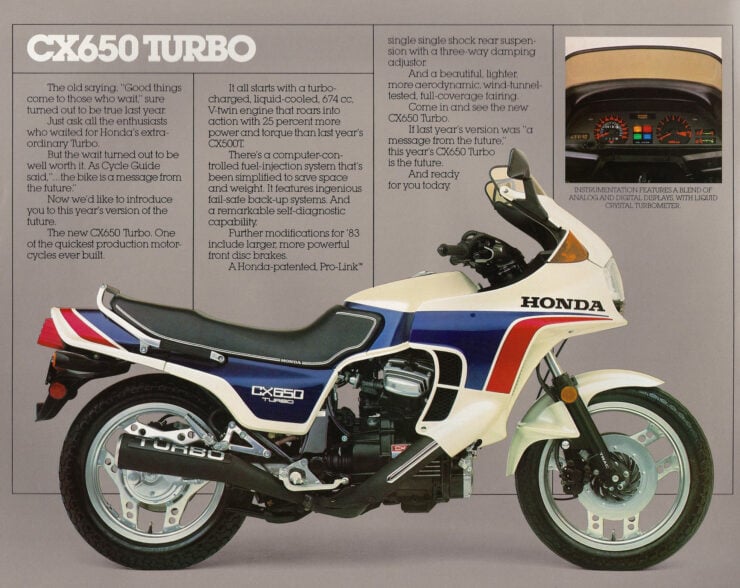

A year later in 1983 the Honda CX650 Turbo was released. It was still expensive but turbo lag had been largely tamed, and fuel economy improved. It wouldn’t be enough for the bike, and it would leave production by the end of the year with just 1,777 made.
“The CX500T has all the good points of the 500T: the fairing and comfort, shaft drive and mega pose value for those who think biggest and flashiest is best. And whereas the 500 fell flat on its face when it came to performance, the 650 has little turbo lag, the ability to cruise all day at well over the ton, and most of all this amazing zappo when you hit the throttle hard.” – Bike Magazine
It’s not known how many examples of the Honda CX650 Turbo have survived, as they were bikes that needed very specific maintenance and didn’t always receive it. Good examples with low mileage are now highly sought after by collectors and enthusiasts alike.
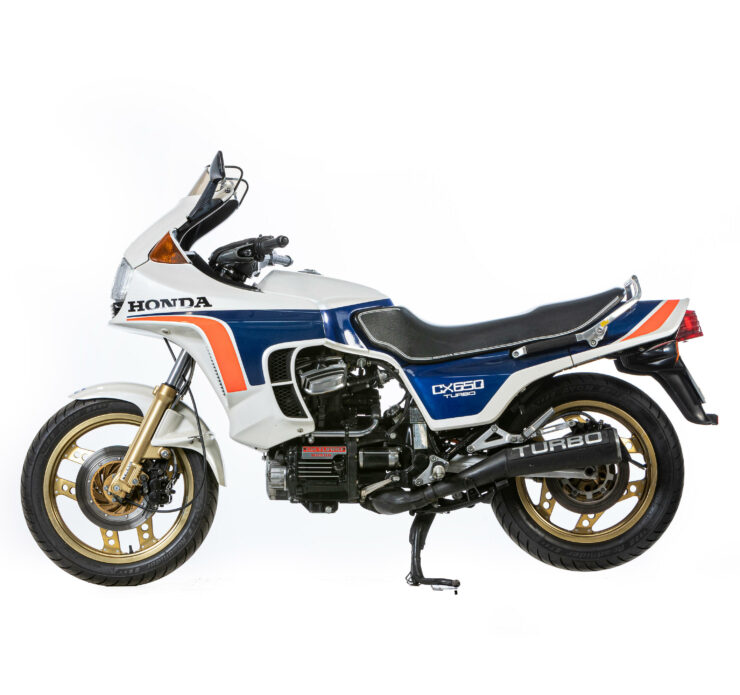

The 1983 Honda CX650 Turbo you see here has had the fuel pump replaced recently and it’s listed as starting and idling smoothly, but they note that it may require further light recommissioning following a period of inactivity.
This bike has just 6,177 kilometers (3,838 miles) on the odometer which is believed to be genuine given the time warp quality of its condition.
It’s due to roll across the auction block with Bonhams on the 14th of October with a price guide of £8,000 – £12,000 which works out to approximately $10,160 – $15,235 USD. If you’d like to read more about it or register to bid you can visit the listing here.
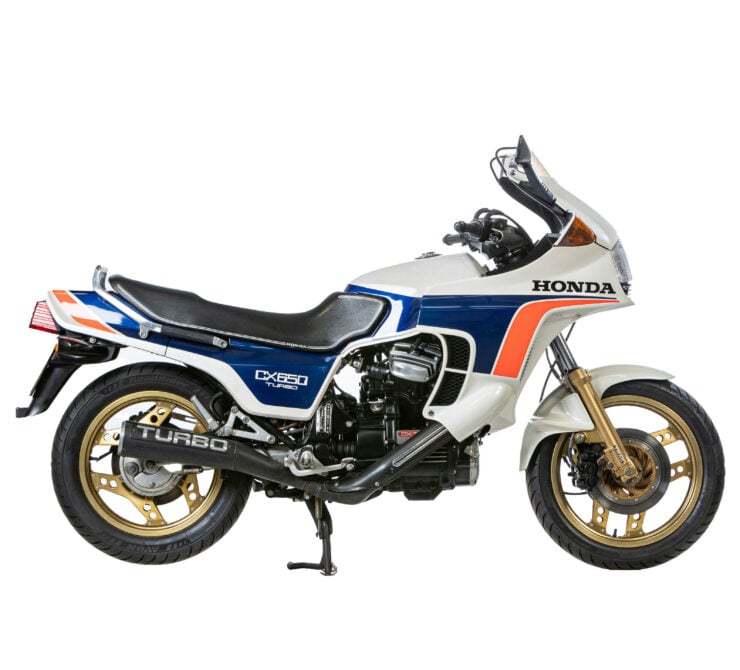
Images courtesy of Bonhams

